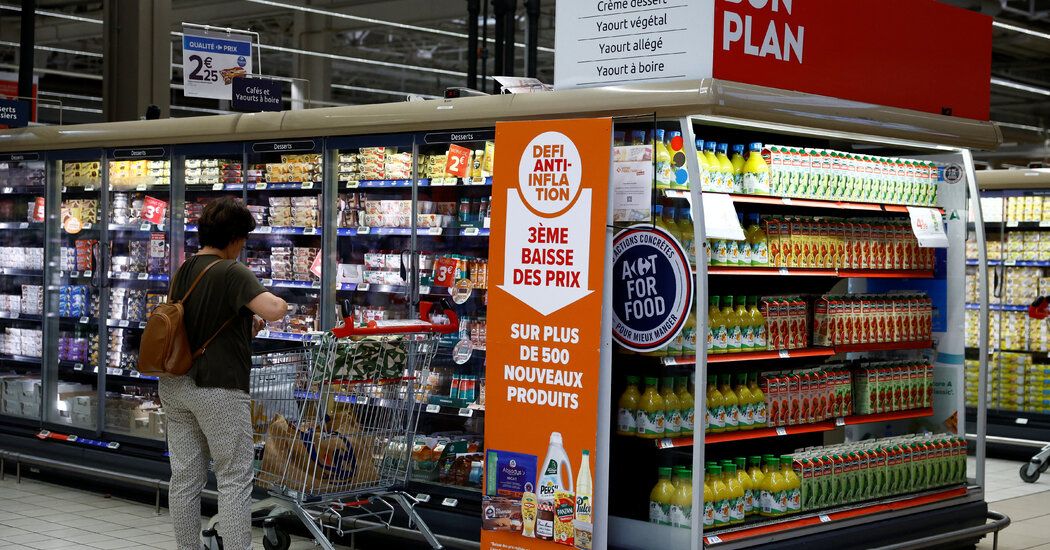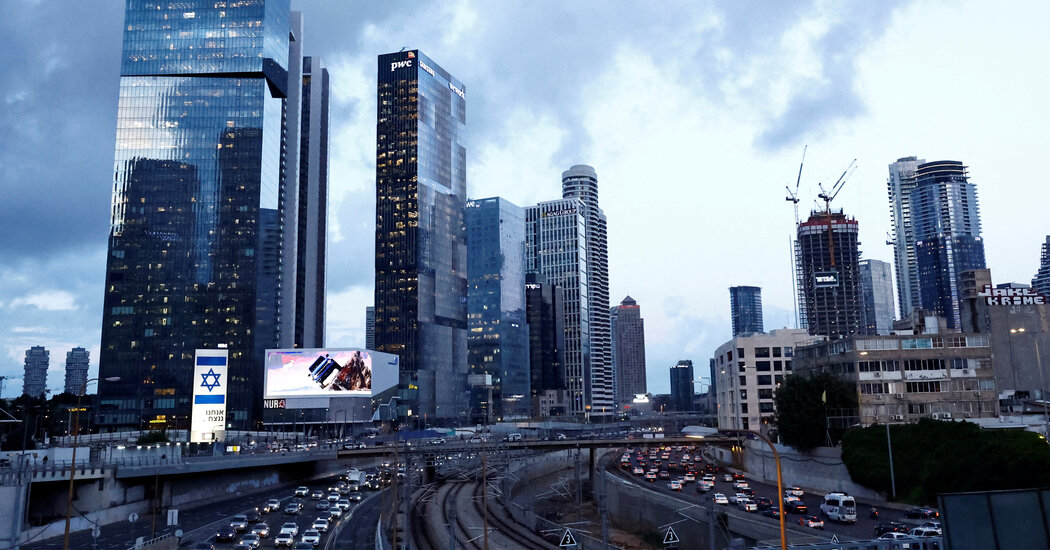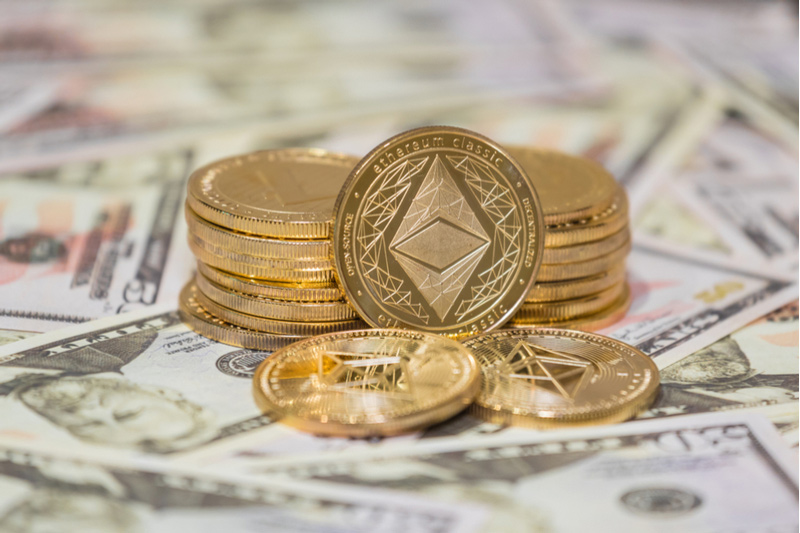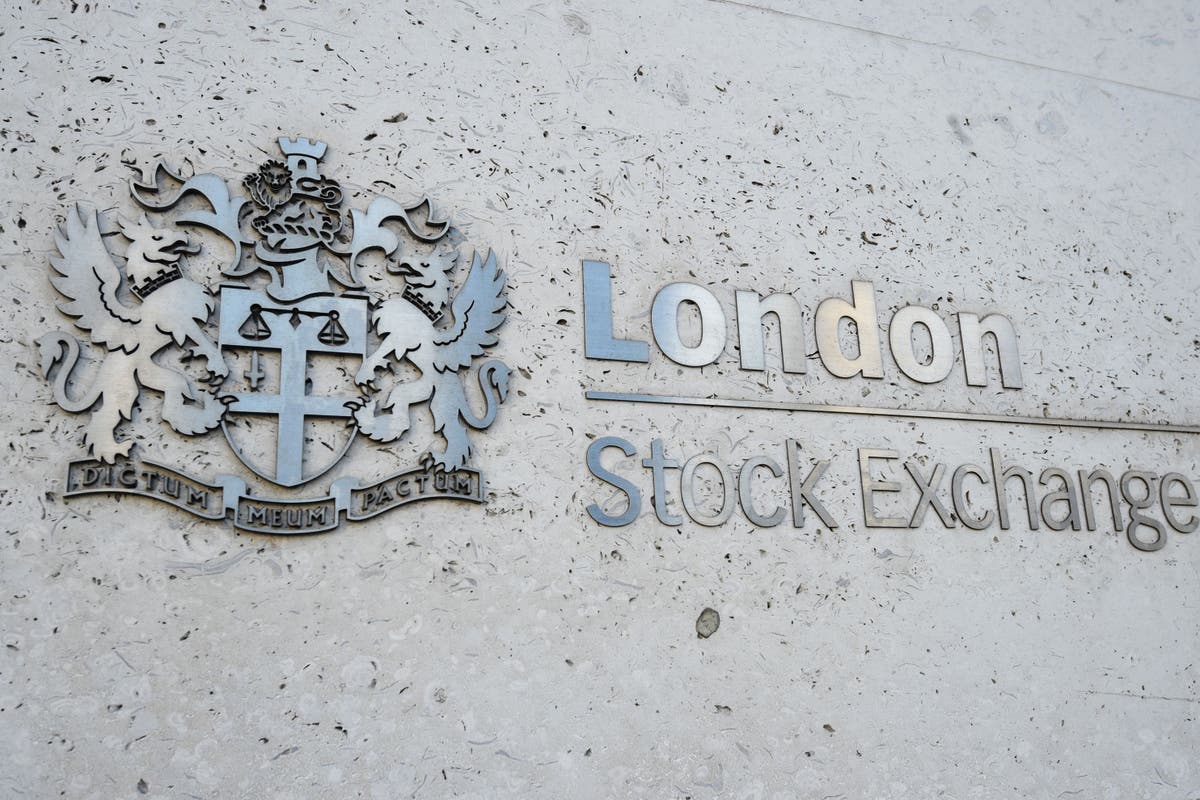The economic headlines in Europe lately are bright: inflation, according to official statistics, is finally coming down. But tell that to consumers who still face skyrocketing prices when they go to the grocery store.
On Thursday, France’s largest food retailer took drastic action to address the situation, announcing it would no longer sell PepsiCo products because prices were “unacceptably” high for consumers, escalating a showdown by French retailers over naming and shaming. to brands that are not. t lower prices as inflation decreases.
Carrefour, a global retail giant, posted signs Thursday in its 3,440 supermarkets in France that typically display Lay’s potato chips, Pepsi and 7-Up soft drinks, as well as Doritos, Quaker cereals and other PepsiCo products. “We no longer sell this brand due to an unacceptable price increase,” the signs read.
A PepsiCo spokesperson said the company had “been in discussions with Carrefour for many months and we will continue to engage in good faith to try to ensure our products are available.”
The move was the latest salvo, encouraged by the French government, to try to pressure manufacturers to reduce food costs that have continued to hit families despite a broad slowdown in price increases across Europe.
Part of that campaign includes identifying brands that also engage in the practice of deflation, in which manufacturers reduce the size of food packages while maintaining or increasing the price.
Inflation in the eurozone fell to a new two-year low in November, falling much faster than expected as a result of an aggressive campaign of interest rate increases by the European Central Bank and efforts by European countries to reduce energy and food prices. In France, inflation rose to an annual rate of 3.7 percent in December, a third less than a year earlier.
But food price inflation is especially persistent. A typical basket of staple foods in France, from pasta to yogurt, is still 7 percent higher than a year ago.
Some manufacturers have justified those costs by arguing that profit margins in Europe are below average because input costs are particularly high. Unilever Chief Financial Officer Graeme Pitkethly told analysts in October that “the extent of price increases, although historically high, has not yet been sufficient to cover the cost inflation we have experienced.”
France, which is Europe’s largest food market by supermarket sales, has been pressuring manufacturers and retailers for more than a year to lower prices.
President Emmanuel Macron has said he wants food prices to fall by at least 5 percent, to reflect a general drop in raw material costs that has begun to emerge after more than a year of record prices, resulting largely from the Russian invasion. from Ukraine.
In November, it demanded that the deadline for annual price negotiations between French retailers and manufacturers be brought forward by two months, to the end of January, to provide faster relief to shoppers. France also recently submitted a proposal to the European Union that would force food retailers to carry out an inflation-reducing labeling campaign. Carrefour has begun marking its shelves with signs detailing the degree of shrinkage and how much consumers were being misled on prices.
“We have large companies that are increasing prices for some of their brands, and we want to bring them together again and achieve price reductions as quickly as possible,” Macron said. “It is intolerable to see so many households having to make decisions about essential goods.”
Many global consumer goods companies have increased prices by double-digit percentages over the past year. They have often attributed the increases to higher ingredient and labor costs. At the same time, many of those companies have reported rising profits as they sell fewer items at higher prices.
In recent months, companies have reported that buyers are more burdened by inflation and high interest rates. Companies that sell consumer goods, including PepsiCo, have reported noticing customers tightening their finances.
“I think we see the consumer right now being more selective,” Hugh Johnston, PepsiCo’s chief financial officer at the time, told analysts on an earnings call in October. “There is a certain value orientation.”
Retailers are eager to see prices drop. Executives at Walmart, the largest U.S. retailer, welcomed the moderation in general merchandise prices ahead of the holiday season but were concerned about persistently high food prices.
“The pockets of disinflation we’re seeing are helping, but we’d like to see more and faster, especially in the dry grocery and consumables categories,” Walmart CEO Doug McMillon told analysts in November.
The move in France comes amid a broader push in Europe to address a cost-of-living crisis that has persisted even as the economy falters. While the U.S. economy has been expanding, Europe has been moving along a very different path: a prolonged economic slowdown burdened by a double dose of high interest rates and the lingering impact of the energy crisis triggered by Russia’s war in Ukraine.
In Italy, the government has tried to pressure retailers and manufacturers to reduce food prices. The Greek government has begun requiring supermarkets to report the prices they charge for basic foods.
Other large French supermarket chains said they could do the same. “This is not over,” Michel-Édouard Leclerc, president of Leclerc, a major food retailer, said Tuesday in an interview on French radio. He added that many food manufacturers are still asking for price increases of 6 to 8 percent.
J. Eduardo Moreno contributed reporting from New York.









